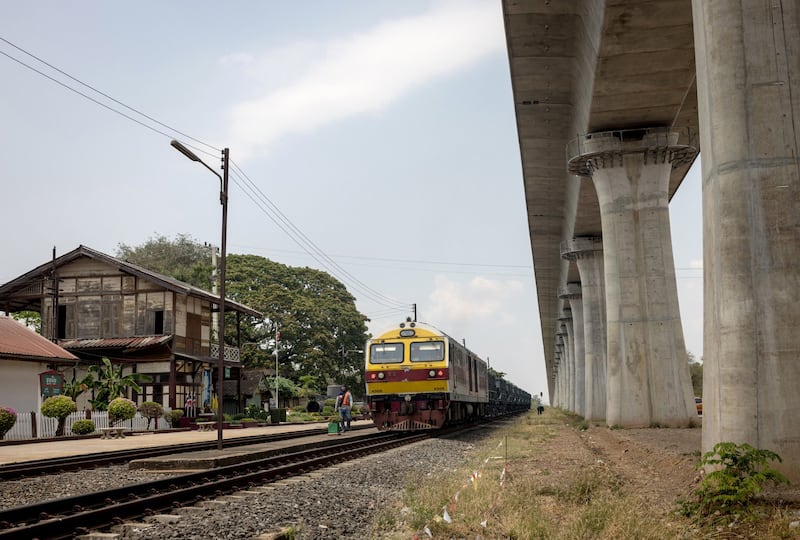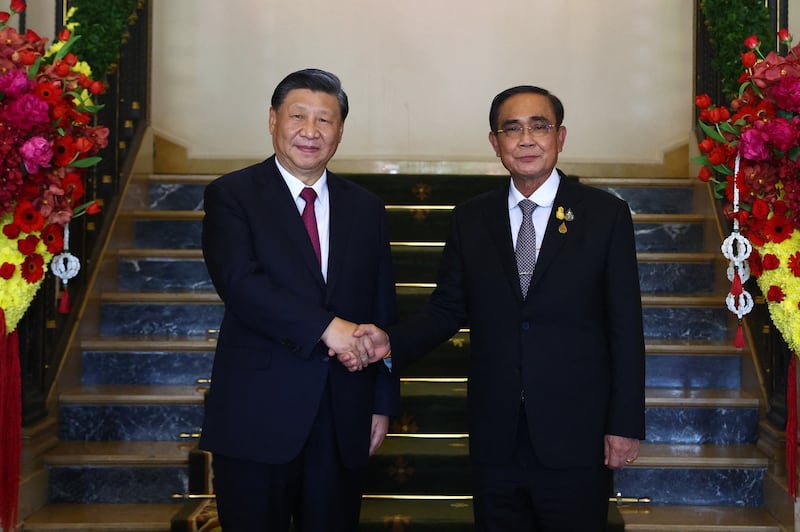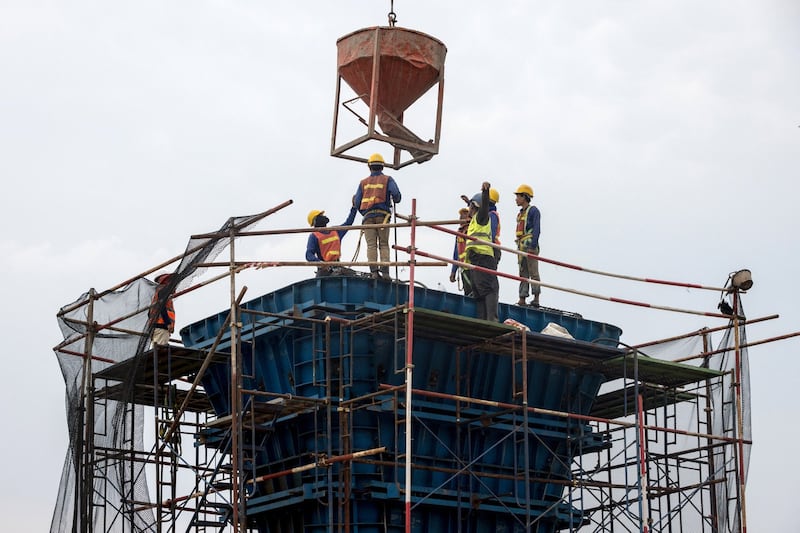In recent years, Thailand and China have seen growing ties, particularly through the ambitious trans-continental railway project. This initiative, designed to connect the Indochina Peninsula to the Malacca Strait, promises substantial economic benefits for both countries, especially by boosting tourism and enhancing regional connectivity.
However, the strategic implications of the railway project have caused alarm in Thailand, where memories of the World War II-era Death Railway stir anxieties about potential military use. Some fear that China could leverage this infrastructure in a future conflict with the U.S. and its Asian allies, transforming it from an economic asset into a tool of geopolitical strategy.

What is the situation?
Since a 2014 military coup, Thailand has increasingly shifted its political and economic alignment toward China.
Once a key non-NATO ally of the U.S., Thailand has grown more dependent on Chinese-made weaponry, including tanks and submarines, while adopting a power-balancing strategy in its foreign relations.
The coup, led by former army chief Prayuth Chan-o-cha, strained Thailand’s nearly two-century-old ties with the U.S., pushing the kingdom closer to China both economically and politically.
The current civilian government, which succeeded Prayuth, has also embraced a pro-China stance, marking a significant departure from Thailand’s historical alignment with the U.S.

But the deepening ties with China have created economic challenges, as Chinese goods – from produce to electric vehicles – flood Thai markets, increasing the trade deficit.
In 2023, bilateral trade between Thailand and China reached US$118.7 billion, leaving Thailand with a $28.1 billion deficit for the year. By mid-2024, the deficit surged nearly 15% year-on-year to $20 billion, driven by a 7.12% rise in Chinese imports. While the U.S. remains Thailand’s largest export market, Chinese imports dominate the domestic market, with Chinese e-commerce platforms providing direct access to consumers at lower prices.
This influx of Chinese goods has severely impacted Thailand’s small and medium-sized enterprises. Nearly 700 factories shut down in the first half of 2024, 86% more than the same period a year earlier, as domestic industries struggle to compete with cheaper Chinese products, according to the Joint Standing Committee on Commerce, Industry and Banking.
What is the main concern?
The economic benefits of infrastructure projects like the high-speed railway are evident but historical fears of external dominance linger, especially in light of events during World War II.
During the war, more than 90,000 Asian civilians and 16,000 Western prisoners of war perished from hard labor, starvation, and disease while being forced to build the Imperial Japanese “Death Railway.” This strategic railway, constructed by Japan in 1942, connected Ratchaburi in Thailand to Myanmar, despite allied bombings.
At the time, Thailand, then Siam, employed a “Bend With The Wind” strategy to avoid direct colonization, but was ultimately compelled to join forces with Japan under unequal terms – a brief but painful period of domination.

When Japan launched an amphibious assault on Thailand in 1941, just a day after the attack on Pearl Harbor, Thai forces resisted for only a few hours before conceding to Japanese demands. Despite this, Thailand’s ambassador to the U.S. delayed delivering a declaration of war, sparing the country from post-war repercussions once Japan surrendered.
Today, experts like Panitan Wattanayagorn caution that history could repeat itself.
“In wartime, the Belt and Road Initiative and other key infrastructure in Asia will be prime targets for superpowers, particularly the United States and its allies,” said Panitan, a former security adviser to the Prayuth administration.
Should conflict arise between China and the U.S., Thailand may be forced to pick sides and defend its infrastructure, potentially siding with China to protect Belt and Road projects, said Panitan, adding in such a scenario, the high-speed railway and other Chinese investments could be repurposed for military use, drawing Thailand deeper into geopolitical tensions.
How should Thailand respond?
Experts stress that Thailand should be “fully aware” of China’s military projection in Southeast Asia in order to navigate strategic entanglements.
Dulyapak Preecharush, an associate professor of Asian Studies at Thammasat University in Bangkok, said last month that China’s military projection would include Cambodia’s military buildup and its support of the narcotics-dependent ethnic Wa militia force in northeast Myanmar.
Cambodia and Thailand have also yet to solve a maritime border dispute in a gas-rich part of the Gulf of Thailand, and Cambodia's claim to Koh Kood, a tourist resort island off southeast Thailand, could become a flash point.
Thailand had to weigh its big-power options carefully, Dulyapak said.
“We have to discuss with China more and more if we don’t have a policy to accommodate India and the U.S. to balance China,” he said.
“But if we lean toward the U.S. and other superpowers we have to calculate the consequences.”
Thailand’s newly appointed prime minister, Paetongtarn Shinawatra, last week told parliament that she would turn the tide on trade while maintaining a peaceful foreign policy.

“The government will support and protect the interests of SMEs from foreign unfair trade practices, especially from online platforms,” she said.
She promised to promote “consistent and clear policy, working with countries to actively promote peace and common prosperity.”
She also vowed to tackle online scam centers, operated by Chinese investors, which are proliferating in Myanmar, Cambodia and Laos.
Edited by Taejun Kang and Mike Firn.
BenarNews is an RFA-affiliated online news organization.
